Related Research Articles

"Zdravljica" is a carmen figuratum poem by the 19th-century Romantic Slovene poet France Prešeren, inspired by the ideals of Liberté, égalité, fraternité. It was written in 1844 and published with some changes in 1848. Four years after it was written, Slovenes living within Habsburg Empire interpreted the poem in spirit of the 1848 March Revolution as political promotion of the idea of a united Slovenia. In it, the poet also declares his belief in a free-thinking Slovene and Slavic political awareness. In 1989, it was adopted as the regional anthem of Slovenia, becoming the national one upon independence in 1991.

France Prešeren was a 19th-century Romantic Slovene poet whose poems have been translated into English, French, German, Italian, Spanish, Hungarian, Slovak, Polish, Russian, Ukrainian, Belorussian, Bengali, as well as to all the languages of former Yugoslavia, and in 2013 a complete collection of his "Poezije" (Poems) was translated into French.

Simon Jenko was a Slovene poet, lyricist and writer.
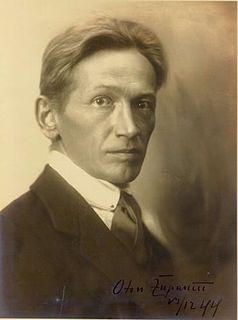
Oton Župančič was a Slovene poet, translator, and playwright. He is regarded, alongside Ivan Cankar, Dragotin Kette and Josip Murn, as the beginner of modernism in Slovene literature. In the period following World War I, Župančič was frequently regarded as the greatest Slovenian poet after Prešeren, but in the last forty years his influence has been declining and his poetry has lost much of its initial appeal.

Tomaž Šalamun was a Slovenian poet who was a leading figure of postwar neo-avant-garde poetry in Central Europe and internationally acclaimed absurdist. His books of Slovene poetry have been translated into twenty-one languages, with nine of his thirty-nine books of poetry published in English. His work has been called a poetic bridge between old European roots and America. Šalamun was a member of the Slovenian Academy of Sciences and Arts. He lived in Ljubljana, Slovenia, and was married to the painter Metka Krašovec.

Milan Dekleva is a Slovene poet, writer, playwright, composer and journalist.

Kajetan Kovič was a Slovene poet, writer, translator, and journalist. In 1978, he received the Prešeren Award, the highest artistic award in Slovenia, for his poetry collection Labrador.

Ciril Zlobec was a Slovene poet, writer, translator, journalist and former politician. He is best remembered for his poems, publishing several volumes of poetry in his lifetime. In 1990 he became a member of the Presidency of Slovenia at a critical time for Slovene independence.

Milan Jesih is a Slovene poet, playwright, and translator. He was the president of the Slovene Writers' Association between 2009 and 2011.
The Jenko Award is a literary award in Slovenia awarded each year for the best poetry collection in Slovene published in the previous two years. It has been bestowed since 1986 by the Slovene Writers' Association. It is named after the 19th-century Slovene poet Simon Jenko.
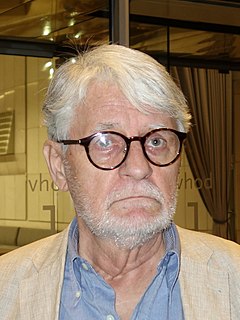
Ivo Svetina is a Slovene poet, playwright and translator. He has won numerous awards for his plays and poetry collections. In 1998 he was appointed Director of the National Theatre Museum of Slovenia. In 2014 he was elected President of the Slovene Writers' Association.
Primož Čučnik is a Slovene poet, editor and translator. He has published numerous poetry collections.
Andrej Medved is a Slovene poet, editor and translator. He has published numerous poetry collections.

Miklavž Komelj is a Slovene poet and art historian.
Uroš Zupan is a Slovene poet and translator. He has published numerous collections of poetry and his poetry has also been translated into German, Polish, Czech, Slovak, English, Serbian and Croatian.
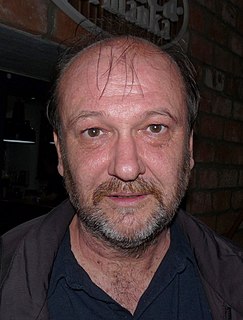
Peter Semolič is a Slovene poet and translator. He has published numerous collections of poetry and his poems have been translated into English, German, Italian, French, Spanish, Polish, Hungarian, Finnish, Serbian, Bulgarian and Macedonian. He translates from English, French, Serbian and Croatian and also writes radio plays and children's literature.
Alojz Ihan is a doctor, specialist in medical microbiology and immunology from Slovenia. Beside his medical profession he is also an acclaimed poet, writer, essayist and editor.
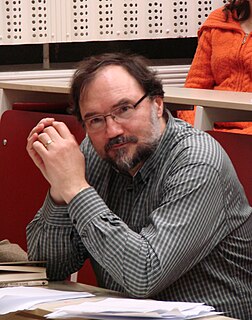
Boris A. Novak is a Slovene poet, dramaturge and editor.
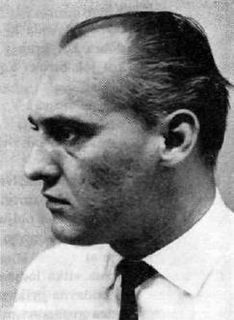
Ivan Minatti was a Slovene poet, translator, and editor. He started writing poetry before World War II, but principally belongs to the first postwar generation of Slovene poets. He is one of the best representatives of Slovene Intimism.

France Forstnerič was a Slovene poet, writer, and journalist.
References
- ↑ "Arc Publications site". Six Slovenian Poets (in Slovenian). Arc Publications. Archived from the original on 2008-03-14. Retrieved 26 January 2011.
- ↑ Harold B. Segel The Columbia literary history of Eastern Europe since 1945, Columbia University Press, 2008, pg.241
- ↑ Jenkova nagrada Maji Vidmar (The Jenko Awards Goes to Maja Vidmar), RTV Slovenija, 16 December 2005)
- ↑ Slovenian Ministry of Culture, complete list of Prešeren Foundation Awards recipients [ permanent dead link ]